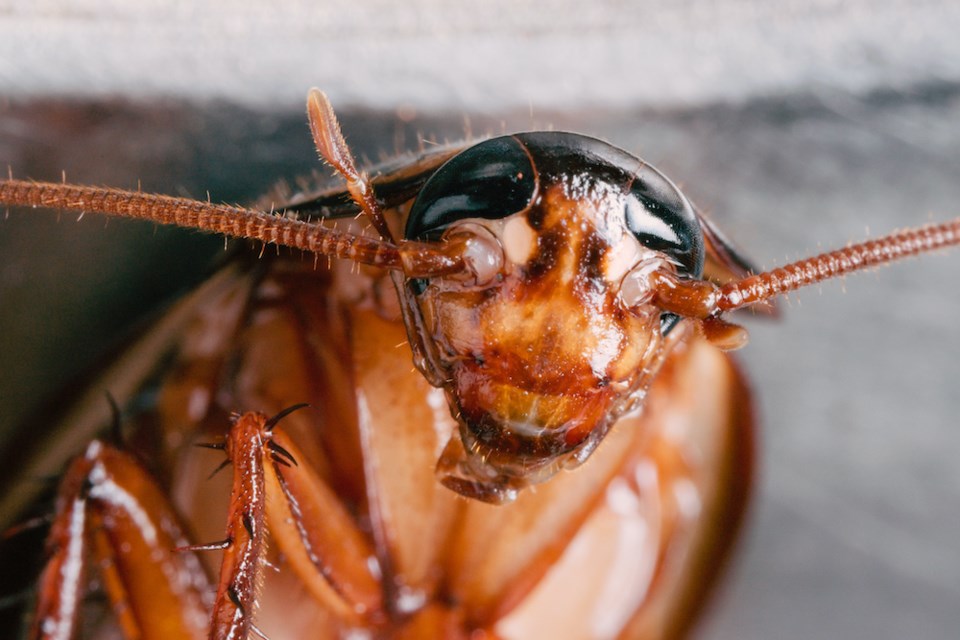A B.C. landlord met the burden of proof to show their tenant's unsanitary unit caused a cockroach infestation that spread through a building.
A tenant filed for with the Residential Tenancy Branch (RTB) for cancellation of a landlord's one-month notice to end the tenancy for cause, and monetary compensation for damages and reduced rent for repairs.
The landlord filed for an order of possession of the unit and a monetary order for damages.
The tenancy commenced on Nov. 1, 2021, with a monthly rent due of $1,100 for a six-month term to April 30, 2022. On Nov. 1, 2023, the rent increased to $1,138. The landlord also retained a $550 damage deposit.
On March 20, 2024, the landlord issued a one-month notice to end the tenancy for cause, effective April 30, 2024. They claimed the tenants posed a serious risk to the health and safety of other occupants after causing a cockroach infestation that spread through the building to other units.
The tenant's advocate stated that the renters were out of town from March 1 until March 17 and didn't know about the pest issue until then. They attempted to treat the infestation with bait and notified the property manager on March 18 about the issue.
On March 19, a pest control control company sprayed in the rental unit but the problem persisted through the next day. The tenants’ advocate noted that the landlord’s evidence contained a “notice of pesticide use,” of chemicals but had no notes from the technician. The following day the notice to leave the rental was posted on the door.
The tenants said the pest control company also treated the unit on April 3 but the property manager was not there and could not attest to the unit's condition. The tenants’ advocate also had various positions on where the infestation originated. At first, he stated it was from a sewer pipe and then later it came from a neighbouring building that had recently burned down. He also claimed the building itself had always had cockroaches.
The renters did not have evidence that the cockroaches migrated from a burned building or a sewer pipe.
The property manager said unsanitary living conditions caused the cockroach infestation
The property manager said the tenant's unsanitary living conditions resulted in the infestation. She testified that pest control visited the unit several times since the infestation was reported and other tenants had "reported seeing cockroaches come from the tenants’ unit, and that they had spread throughout 'half the building.” She also stated that the building’s cleaning personnel saw the pests coming from under the tenants’ unit door.
The pest control company treated several other units in the building but none were as infested. The property manager described the sheer number of cockroaches as "unbelievable" and testified that tenant K.S. was a "bin diver" and brought items into the unit. Many of these items were reportedly stored on the balcony outside and the tenant had been warned not to go through the building's recycling bins.
During the inspection, the building manager determined that the carpet would need to be ripped up because it was dirty and may have cockroach eggs. She said there were pots and pans on the floor and clutter everywhere. She said the pest issue also worsened because the tenants delayed reporting it.
According to of the Residential Tenancy Act, landlords are responsible for providing and maintaining their residential properties in a state that complies with the health, safety and housing standards required by law. In other words, they need to keep your pad pest-free or deal with pest issues as they arise.
However, tenants are also responsible for maintaining the cleanliness of their rental units. Renters must keep their homes neat and tidy to avoid attracting nuisance critters or spreading infestations to other units.
The RTB said the landlord provided "probable evidence" that the condition of the tenant's unit or the behaviour they engaged in caused the infestation to spread through the building. The pest control technician's report supports this claim, as they found that poor sanitary conditions enabled population growth. Additionally, other long-term tenants said they hadn't encountered a cockroach issue before this one, meaning the renter's claim that they existed before their tenancy isn't valid.
The RTB ruled that the landlord was entitled to an order of possession for the rental unit, dismissing the tenant's application for cancellation of the one-month notice for cause on May 29, 2024.




